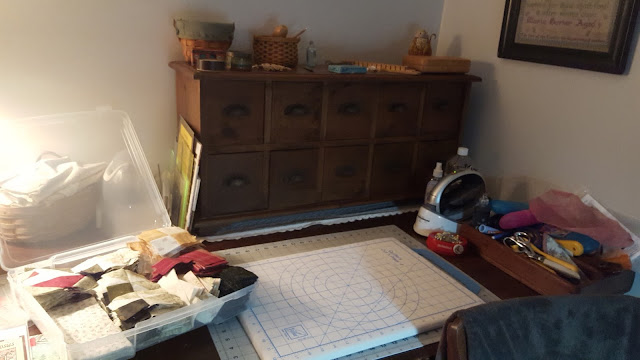In the early 90's, my husband and I were drawn into the investigation of the death of Laura Palmer, homecoming queen, discovered wrapped tightly in plastic near the river in Twin Peaks, Washington. Unlike the Netflix fascination with the death of Teresa Halbach by Steven Avery, we watched the brilliantly-written/bizarrely-woven tale of Twin Peaks for two seasons, as Agent Cooper from the FBI delved into the clues, chatting with the Log Lady, the vertically challenged dancer, and allegedly-hallucinated giants, all while obsessing about the "damned fine cup of coffee" served at the local diner.
It was weird. So weird, that even when we couldn't quite figure out what the heck was going on, we couldn't turn away. Although Twin Peaks aired for only two seasons, prior to its short-lived revival a couple of years ago, there are many 40 and 50somethings who nod in understanding when phrases from the cult favorite come up in conversation. In hindsight, I wonder why we spent so many hours watching something that remains in my mind as being nothing more than a bad head trip, rather than a brilliantly-woven tale of intrigue.
Flash Forward
Given that yesterday was the last day of Mardi Gras, it seemed appropriate to reference flashing in a blog about education, right? There were more than a few people flashing their twin peaks for beads in the French Quarter last night, I am sure. Honestly, I've given little thought to the people of Twin Peaks, Washington, since the turn of the century, aside from attempting to revisit my youth when the series was revived a few years ago. Yet my mind has been fixated on Twin Peaks -- rather --- twin peaks -- since 3rd period yesterday.
My class was divided into two circles of students, assigned with a task to illustrate and differentiate between qualitative and quantitative observation. As often happens, one group finished the task far more quickly than the other, and were waiting for the alternate group to complete their task before the "next step" in the lesson. It was during that brief five minutes that I overheard the words 'shrooms, high, duct tape, and toothpaste, while witnessing an intense "E.F. Hutton Talking" kind of listening happening among the finished group members.
"Yes, Mrs. Heydt. All you need to do is rub toothpaste on your nipples and cover them with duct tape."
Seriously? Who says this to a 54 year old teacher? More importantly, who even discovers or considers such behavior?
Instantly, there was a flurry of searching Urban Dictionary and Google. And yes, it's true. Kids are actually attempting to create hallucinogenic experiences by rubbing toothpaste on their twin peaks, (check the Urban Dictionary!), and adding duct tape patches to seal the deal, protect their clothing, and allegedly extend the duration of the high. It's referred to as "Pasting."
Most of the online discussion about this phenomenon appears on sites frequented by kids like Reddit, KnowyourMeme, and yahooquestions, and that only causes me to become more concerned. Heck, when I was a kid, I used to put toothpaste on zits on my face before I went to bed, hoping for blemish-free skin by morning, so I could have been accused of using the dentifrice for "medicinal purposes" myself. I spoke to our School Resources Officer (SRO), who is usually In the Know about the popular trends in drugs and hallucinogenics, and he was equally clueless.
There is some potentially credible science available indicating that the makeup of the human nipple allows for greater absorption of chemicals into the bloodstream, and that there is the possibility that "Pasting" actually may alter reality. Urban Dictionary has definitions for Pasting dating back nearly four years. Youtube contains more than a few videos of insanity regarding this topic.
The reality is that kids will continue to "be kids" while demanding to be treated like adults. There are hundreds of documented cases of kids who accepted the "Cinnamon Challenge" or "Chubby Bunny" and wound up in the emergency room. As educators, it is our responsibility to monitor, vigilantly, the conversation and trends in our classrooms and cafeterias, and attempt to deter the desire to alter reality as a means of escape or acceptance by their peers.
It's tough, though. Especially when the story overheard is so seemingly stupid that your first thought is the mental image of the associated pain of ripping duct tape off of your sensitive skin.
My comment to my students? "Why would you try it? It may kill you, and you'll be forever-known as the kid who died with duct taped nipples. Not much of a legacy, right?"
Is that enough to deter the behavior? I certainly hope so. Because beyond that, I'm fairly speechless.
#reflectiveteacher #drugabuse #urbandictionary










